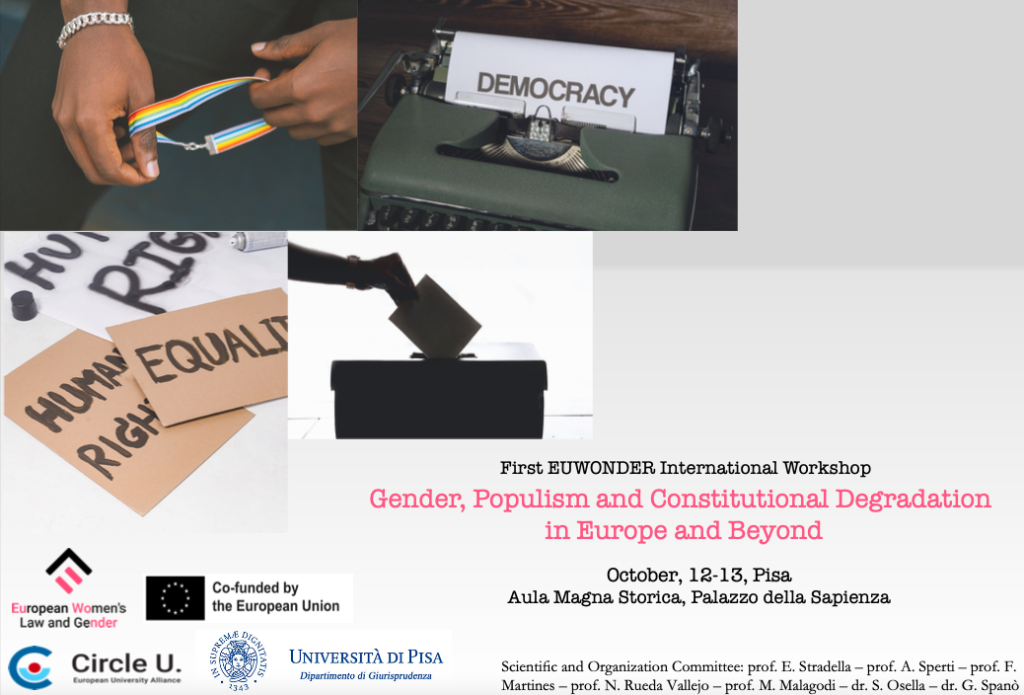
by Rachele Zamperini*
Italy enforces a total ban on surrogacy. However, this prohibition can’t stop Italian citizens from turning to more liberal jurisdictions where the market of reproductive services thrives upon their desire for parenthood. Against this background, in December 2022 the Supreme Court of Cassation (Judgment n. 38162/2022) was called to decide upon the recognition of the relationship between the child and the intended parent. In deciding upon this delicate matter the Court took the opportunity to reiterate the ratio behind the ban on surrogacy, moving from an important premise: “[In surrogacy, it is not only the parental wishes, aspirations and plans of the commissioning couple that are at stake. There are actual people. There are women used as instruments for reproductive functions, with their inalienable rights annulled or suspended within contractual procedures. There are children exposed to a practice that determines uncertainties about their status and, therefore, their identity in society]”[1].
– Facts and legal issues
The case that gave rise to the judgment concerned a same-sex Italian couple of registered partners who had entered a surrogacy contract in Canada under which a child was born. At birth, the child’s birth certificate indicated only the biological father, while, later, the Supreme Court of British Columbia declared that both applicants must be listed as the child’s parents. On the basis of the decision, the couple asked the Italian registrar to also rectify the child’s certificate in Italy. The Italian registrar officer rejected the request.
The couple challenged the officer’s refusal and pursued the case all the way to the First Section of the Supreme Court of Cassation. Given the complexity of the issue, the First Section Chamber referred the matter to the United Sections to decide, in the light of the recent jurisprudence of the Supreme Court and the Constitutional Court, whether the refusal to recognise the effects of the foreign judgment was justified by the conflict with international public order, considering that adoption remains the only way to protect the relationship with the intended parent.
– Foundations of the International Public Order principle
Under Italian private international law, the recognition of foreign judgments is subject to the condition that their provisions do not produce effects contrary to public order (art. 64 Law n. 218/1995). Foreign acts are therefore examined to determine whether their effects are compatible with the fundamental principles of the legal system, as expressed in the Constitution and in international sources, as well as in the ordinary discipline. Therefore, in order to answer the main question, the Court began its reasoning by identifying the functions and content of the principle of international public order. First, the Court noted that the original function of the principle of international public policy, which was to ensure the internal coherence of the Italian legal system, had gradually been joined by a promotional function aimed at promoting the dissemination of protected values, in conjunction with those recognised at international and supranational level.
According to the Court, there are two main parameters for assessing the conformity of the foreign act with the national system. The first is art. 12 of the ART Law (n. 40/2004), which criminalises any form of surrogacy, with sanctions aimed at all the parties involved, including the intended parents. The Court emphasised that this provision constitutes a norm of international public order because it protects the fundamental value of human dignity. The criminal sanction is an indicator of the extreme importance attached by the policymaker to the value protected. Surrogacy, in the Court’s opinion, violates the dignity of both women and children, because it erases the relationship between the woman and the child she carries, reducing the former to a mere service of pregnancy and the latter to the final act of that service. The Court also pointed out that the law doesn’t distinguish between different types of surrogacy, because reducing a woman’s body to a vessel for a life intended for others violates her dignity and limits her freedom, regardless of whether the agreement is onerous or gratuitous. However, according to the Court, there is another element which constitutes the content of public order: the principle of the child’s best interests. The Court emphasised that this principle requires and imposes the protection of the child’s interest in the legal recognition of her relationship with the intended parent. It does not, however, legitimise conducts that the law disapproves. For this reason, the Court stated, it requires to find an alternative way to recognise that relationship.
– Adoption, rather than automatic recognition, better protects the child’s rights
In light of this considerations, the Court affirmed that the transcriptibility of the foreign court order – and a fortiori of the original birth certificate – should be excluded and confirmed the legitimacy of the refusal to recognize the effects of the foreign act. The non-automatic transcription, in fact, expresses the legitimate purpose of discouraging surrogacy, which intolerably offends the dignity of women, deeply undermines human relationships and panders to an unacceptable commodification of the body, often to the detriment of the most economically and socially vulnerable women.
According to the Court, this solution is consistent with the best interest of the child principle. In line with the ECtHR relevant case-law, the Court pointed out how the establishment of parenthood requires a factual assessment based on the child’s primary interest in continuing a caring and affectionate relationship that, de facto, already takes the form of a parental relationship. The imperative need to guarantee the child born out of surrogacy the same rights as other children, in fact, is better ensured through adoption rather than through the automatic recognition of the legal status established abroad. This aim is reached through adoption pursuant to Article 44, first paragraph, letter d), of Law No. 184 of 1983, which allows for legal recognition of the bond with the partner of the biological parent who shared the parental project. In this way, the Italian legal system protects the fundamental rights of the child, rather than succumbing to the logic of the fait accompli.
Finally, the Court concluded with an important clarification, namely that a negative assessment of the existence of the requirement of the best interests of the child cannot be based on the sexual orientation of the applicant. Indeed, the sexual orientation of the couple should never have any bearing on their fitness to assume parental responsibility.
*PhD Candidate, University of Pisa
[1] Page 15 of the decision [all translations in brackets are author’s]




